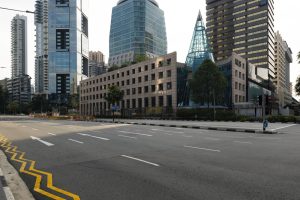As countries around the world, including in Southeast Asia, learn to live with the coronavirus and reopen their economies, it becomes increasingly hard to imagine that just three months ago, many hospitals were on the brink of collapse as the Delta variant took hold of the region.
While the threat of another COVID-19 outbreak remains present, with a growing number of studies pointing to waning vaccine immunity over time though they remain highly effective against severe illness and hospitalization, countries should prepare for future pandemics.
As The Atlantic’s Pulitzer prize-winning science writer Ed Yong wrote a few weeks ago, future pandemics will become more likely as the “global population grows, the climate changes, and as humans push into spaces occupied by wild animals.” He added that the “window to prepare for future threats is closing fast” as nations lapse into neglect.
In the past two decades, new coronaviruses jumping from animals to humans have emerged with alarming frequency, with researchers identifying most of Southeast Asia as potential hot spots for viral spillovers. The next pandemic has always been a question of when, not if.
A recent study in the U.S. and a parliamentary report in the U.K. found that tens of thousands of COVID-19 deaths could have been prevented, respectively, if more adults had been vaccinated and nationwide lockdowns had been instituted earlier.
The “Coronavirus: lessons learned to date” report in the U.K. concluded that while some of the country’s initiatives such as early investment in research and development for vaccines were examples of global best practice, others like its failure to establish a meaningful testing system represented mistakes deemed as among the “worst ever” public health failures in U.K. history.
In Southeast Asia, similar lessons can be learned from the region’s “mixed” success in its series of wars against COVID-19, ISEAS-Yusof Ishak Institute director and CEO Choi Shing Kwok said in a commentary published last week.
Choi said while there is a high probability that a new variant could emerge to displace the Delta variant, governments in Southeast Asia must realize that they need to “re-tool” themselves with a “more agile and flexible mindset” to stay ahead of the game.
As countries shift away from “zero COVID” strategies and begin treating the coronavirus as endemic, it is perhaps crucial to recognize the importance of early containment strategies such as strict circuit breakers and targeted lockdowns to keep the virus at bay, even if they sound drastic.
There is no denying that the early COVID-19 responses seen in many Asian countries, including Singapore and Vietnam, prior to the Delta wave, had prevented a “catastrophe” from unfolding given their connectivity with mainland China.
For context, the whole of Southeast Asia recorded less than 77,000 deaths from COVID-19 by early June this year while Britain, with one-tenth as many people, had over 128,000. The more aggressive Delta variant, in combination with limited vaccine rollout, later resulted in a surge of infections and deaths in the region as health services were quickly overwhelmed.
This suggests that until vaccines and other relevant treatments become available to a country’s population, options to effectively curb the transmission of infectious diseases remain limited.
Testing and contact tracing also remain essential with case numbers still high. Singapore has intensified its testing regime by increasing the testing frequency for workers in high-risk settings to once per week, among others, while Malaysia is developing a national testing strategy that will require the public to undergo COVID-19 tests regularly.
Digital dashboards tracking the spread of COVID-19 too have become invaluable in measuring the impact of the pandemic in order to craft evidence-based policies and to communicate effectively with the public as well as a multitude of stakeholders.
Early containment, testing, and digital adoption are just some tried-and-tested measures in the COVID-19 playbook that should help nations prepare better come the next pandemic. According to The World Bank, investing in preparedness not only saves lives but ultimately saves money.
The fight against the coronavirus is often likened to a war, with many turning to world war histories to provide context to visualize the number of deaths caused by the virus. Every war has a plan, and while plans may be fallible, it is far better than having no plan at all.

































